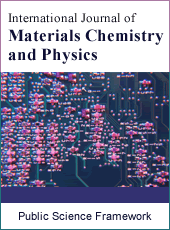International Journal of Materials Chemistry and Physics
Articles Information
International Journal of Materials Chemistry and Physics, Vol.3, No.2, Apr. 2017, Pub. Date: Dec. 9, 2017
Influence of Controlled Heat and Pressure on the Properties of Modified Asphalt Cement
Pages: 10-16 Views: 2343 Downloads: 854
[01]
Saad Issa Sarsam, Department of Civil Engineering, College of Engineering, University of Baghdad, Baghdad, Iraq.
[02]
Sara Ali Jasim, Department of Highway and Transportation, University of Al Mustansiria, Baghdad, Iraq.
The asphalt cement is obtained as a byproduct through the distillation process of crude oil, it requires further processing to control its constituents and quality. In Iraq, the processing units are out of order due to aging and lack of maintenance, and the produced asphalt cement does not match the standard specification required for paving work. One of the existing remedy process is to go for modified asphalt cement, which can be prepared by the addition of certain additives. The preparation method of modified asphalt cement has a great influence on its quality. In this work, asphalt cement of 44 penetration grade was obtained from Dora refinery, south of Baghdad, the asphalt cement had experienced physical and rheological properties determination. Asphalt cement was then digested with three types of modifiers, scrap tire rubber, Styrene-butadiene-styrene (SBS) and low density Polyethylene (LDPE). A cooking pressure vessel of 6 liters capacity was implemented throughout the preparation process of modified asphalt cement. The mixture was subjected to four mixing periods (10, 20, 30 and 50) minutes and a temperature of 130°C and the pressure applied by the vessel was maintained to 1bar (15 Psi). The modified asphalt cement obtained was subjected to physical and rheological properties determination, and the test results have been analyzed and compared. It was concluded that the controlled heat and pressure and mixing period have a various positive or negative impacts on the overall properties of modified asphalt cement.
Modified Asphalt Cement, Mixing Temperature, Pressure, Rheology, SBS, LDPE, Scrap Tire Rubber
[01]
Sarsam S. (2013). Improving Asphalt Cement Properties by Digestion with Nano Materials, Sciknow Publications Ltd. Research and Application of Material RAM, 1(6): 61-64.
[02]
Sarsam S., and AL-Lamy A. (2015). Fatigue Life Assessment of Modified Asphalt Concrete, International Journal of Scientific Research in Knowledge, 3(2), pp. 030-041.
[03]
Liu H., Fu L., Jiao Y., Tao J. and Wang X. (2017), Short-Term Aging Effect on Properties of Sustainable Pavement Asphalts Modified by Waste Rubber and Diatomite. Sustainability, 9, 996: 1-15.
[04]
Javid M. (2016). Effect of Polymer Modification on Rheological Properties of Asphalt. Journal of Civil Engineering Research, 6(3): 55-60.
[05]
Sarsam S, Lafta I (2014). Assessing Rheological Behavior of Modified Paving Asphalt Cement, American Journal of Civil and Structural Engineering, AJCSE 2014, 1(3): 47-54.
[06]
Abd-Allah A., Attia M., Khamis M., Deef-Allah E. (2014). Effect of Using Polymers on Bituminous Mixtures Characteristics in Egypt. IOSR Journal of Mechanical and Civil Engineering (IOSR-JMCE), Volume 11, Issue 4 Ver. VII (Jul- Aug.), PP 54-63.
[07]
Punith V. and Veeraragavan A. (2011). Behavior of Reclaimed Polyethylene Modified Asphalt Cement for Paving Purposes. Journal of material in civil engineering Vol. 23 Issue 6 June, ASCE.
[08]
Awanti S.; Amarnath M.; and Veeraragavan A. (2008). Laboratory Evaluation of SBS Modified Bituminous Paving Mix. Journal of material in civil engineering Vol. 20 Issue 4 April, ASCE.
[09]
Lucena M., Soares S., and Soares J. (2004). Characterization and Thermal Behavior of Polymer-Modified Asphalt. Material research, 4Vol. 7, No. 4, pp. 529-534.
[10]
ASTM (2013). Road and Paving Materials, Annual Book of ASTM Standards, Volume 04.03, American Society for Testing and Materials,” West Conshohocken, USA.
[11]
Sarsam S. and Lafta I. (2014). Assessment of Modified - Asphalt Cement Properties. Journal of Engineering, Vol. 20 No. 6, pp1-14.
[12]
Sarsam S. (2015). Impact of Nano Materials on Rheological and Physical Properties of Asphalt Cement, American Institute of science, Public science framework, International Journal of Advanced Materials Research, Vol. 1, No. 1, pp. 8-14.

ISSN Print: 2471-9609
ISSN Online: 2471-9617
Current Issue:
Vol. 7, Issue 1, March Submit a Manuscript Join Editorial Board Join Reviewer Team
ISSN Online: 2471-9617
Current Issue:
Vol. 7, Issue 1, March Submit a Manuscript Join Editorial Board Join Reviewer Team
| About This Journal |
| All Issues |
| Open Access |
| Indexing |
| Payment Information |
| Author Guidelines |
| Review Process |
| Publication Ethics |
| Editorial Board |
| Peer Reviewers |


